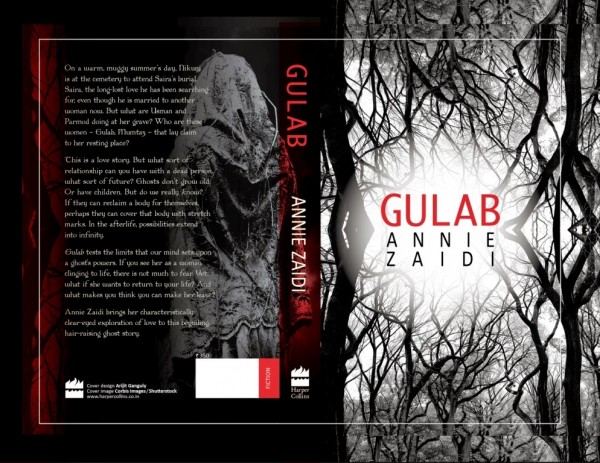By Shilpa Raina
Title: Gulab; Author:Annie Zaidi; Publisher: Harper Collins; Pages: 186; Price: Rs.350
There is a mysterious, parallel world out there. Some believe, some ridicule and some dread. But what if one falls in love with a ghost, without even realising this? Together they build a house of dreams, till one fine day the ghost decides to move on.
It is this dreading topic of the dead, ghosts and the parallel world that Annie Zaidi takes us to.
From the very beginning we know what to expect from the story, yet the simplicity with which the author has woven monologues and dialogues, built up suspense and created situations keeps you hooked.
What binds the narrative together is the 24-hour time-span within which the story takes many unexpected turns.
Of course, it is a love story. But what sort of love will blossom between the living and the dead? We all have heard ghost stories where we have been told some spirits stay in this world because they have some unfinished job or some unfulfilled dreams.
And it is this sense of unfulfilment that has been bothering the protagonist, Nikunj, who after years of bewilderment and failed quests of finding his beloved Saira, gets a telegram announcing her death and a request to attend the funeral.
Then begins the quest of finding her grave in the Muslim graveyard, where he meets two other men – one a Hindu and another a Muslim – who claim to have buried their wives at the same place where Saira is buried.
And, there’s a woman who too claims to have buried her friend Saira at the same place.
Building on this confusion in the eerie atmosphere of a graveyard, Zaidi has majorly narrated the story in first person, with Nikunj’s reverie travelling between past and present. Sketches of his past and present relationships, his everyday life and grim absence of Saira from his life come out through monologues where he regrets not having her in his life.
Through these moments of loss, Zaidi has successfully created scenes which are eerie enough to scare the reader. Like the one where Nikunj sees himself from a distance, and realises his soul is not in his body, but outside it.
Though he later claims of have “out-of-body” experience, the author indeed has powerfully used her imaginative skills to create scenes that fittingly make for a Bollywood horror script. And black-and-white illustrations done by her mother, Yasmin Zaidi, lend equal support to make the narrative powerful.
It would be unfair to reveal how the love story unfolds, but Zaidi’s strength lies in colloquially telling a tale that might not be everyone’s cup of tea, but something many believe in. Her ability to make Nikunj believable, someone who is afraid of getting into a fight and someone who is vulnerable and lost is what makes this small book enjoyable.
Zaidi has explanations for all not-so-believable moments and somehow makes us believe those moments.






